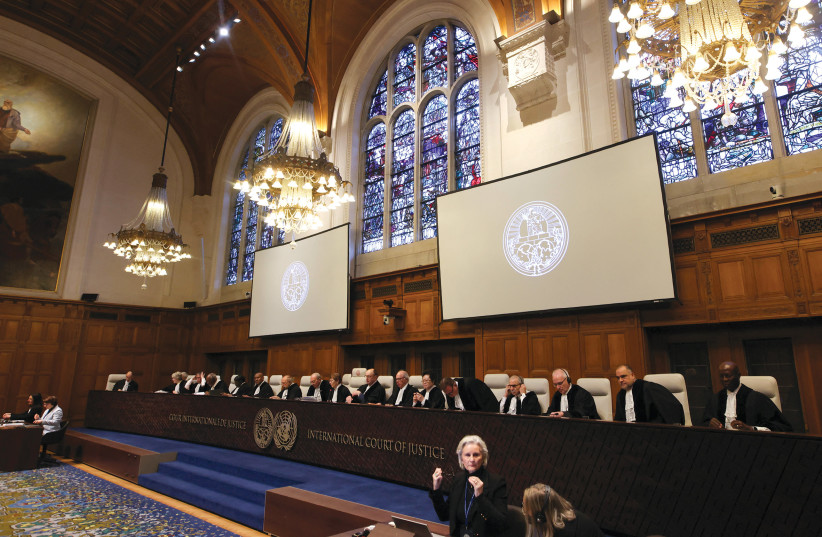Former International Court of Justice President Joan Donoghue told BBC's HARDtalk on Thursday that there had been a general misunderstanding of the meaning of the ICJ's ruling on the case.
Donoghue served as the ICJ's president from 2021 until 2024 and served on the court from 2010.
She presided over South Africa's case against Israel, representing the court.
When she was asked about the court's ruling on the case, she clarified a general misunderstanding of its meaning.
The court decided that "the Palestinians had a plausible right to be protected from genocide" and that "South Africa had a right to present that in the court."

"It did not decide, and this is something where I'm correcting something that's often said in the media. It did not decide that the claim of genocide was plausible."
Clarifying further, she said that the order emphasized there was a risk to the Palestinian right to be protected from genocide.
"The shorthand that often appears, which is that there's a plausible case of genocide, isn't what the court decided."
Disappointment with events following the order
In another part of the interview, she expresses disappointment at what has happened since the order. However, she said she couldn't comment on whether Israel had complied with the court order as that is currently being put to the court.
She added that she was unable to comment on Israel's report to the court on its compliance with the order because it had not been made public.
Donoghue also said that the lawyers "in the room" in Israel were in the best place to make sure that Israel was complying with the order.
When asked how the planned invasion of Rafah fits into Israel's compliance with the court order, she told HARDtalk that the court had made no explicit ruling on the military operations in Gaza.
"It can't be said that continuing the operation itself violates the order," she said. "But quite clearly, the threats about going into Rafah are why South Africa went back to the court and why the court imposed additional, more precise measures."
Donoghue was asked about whether Israel's lack of compliance with the order challenged the ICJ's credibility.
She said that if one only looked at this case, then someone might believe that but that, in general, the international law community tended to have a broader, more long-term view of the issue.
She also said that there was more of an appreciation that "courts don't really solve these kinds of problems."
"They can contribute," she said, "but they are just a piece of a broader international infrastructure."
